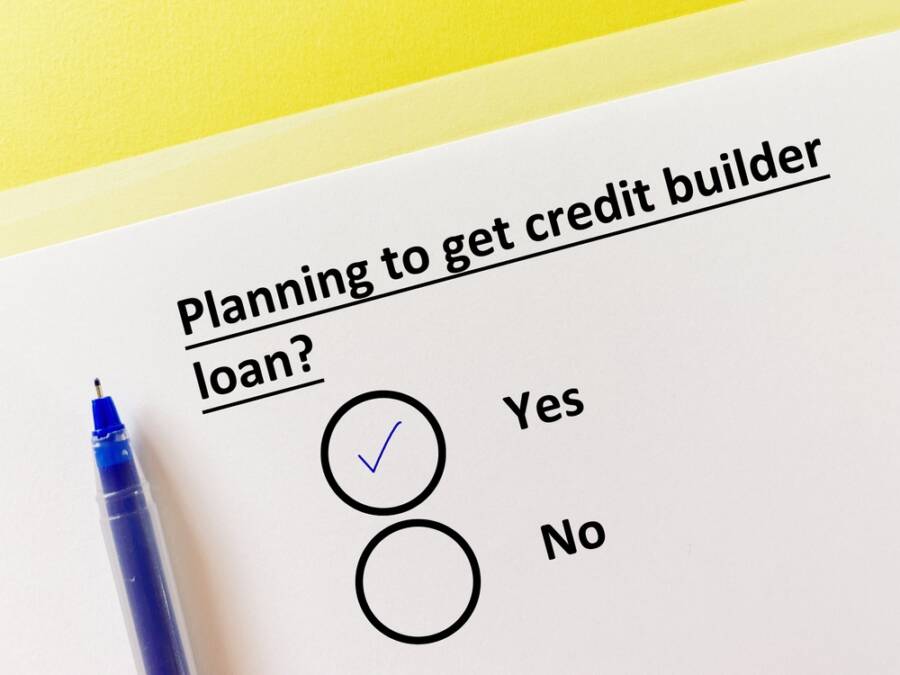Use these simple tricks and improve your credit score!
Did you know that according to a 2023 Experian report, only 36% of Americans have an “excellent” credit score (above 800)? This is a huge problem because if you don’t have a good credit score, your ability to secure loans, rent an apartment, or even get the best insurance rates is in danger.
We know that you don’t want to risk it, and hopefully, there are some easy and effective ways to improve your credit score. This whole industry is incredibly tricky; credit scores fluctuate on a daily basis and the methods they use to determine if you are worthy to get that loan or not are based on various models. Many companies rely on different models, so things are even more complicated.
Credit utilization and mix play are some obvious methods many of us use to make things better, but there are also some hidden tricks that can significantly boost your score. Do you want to know more about them? Then keep reading and learn how to become a credit score champion in no time!
1. New lending products? Forget about them
OK, ready to improve your credit score? Great! Anyone who wants to achieve long-term financial stability wants to do this, but often they don’t know where to begin. This is completely understandable, and we are here to support you with some top-notch advice.
A healthier credit score can be reached using many strategies, and one of the most well-known is limiting credit card spending. But refraining from applying for new lending products is right there and can also be more effective. This is a great tactic if you are looking to make a big purchase in the near future, such as buying a home.
No matter how you plan to make this purchase, be it a new line of credit, a mortgage, or a car loan, the lender has to initiate a “hard inquiry” on your credit report. What is this? Well, it means that the credit bureau is formally requested to access your credit history, and unfortunately, this can have a short-term negative impact on your credit score.
The more inquiries are requested in a short period of time, the higher the chances for your score to drop. This happens because this might look like a signal you are in financial distress, and no lender wants to deal with that.
So, if you plan to improve your credit score, the wisest thing to do is to not apply for new credits for a while. It can sound like a big financial restraint, but in reality, it is incredibly beneficial, and it helps you demonstrate that you are a responsible borrower.

2. Try a credit builder loan
If you have poor credit and plan to improve your credit score, this is the tool that can save you! This works differently compared to the traditional loans. You will no longer pay the loan upfront, but instead, your funds are held in a secure savings account by the financial institution, and you will need to pay monthly until the loan is completely repaid.
This means the loan you make is safely stored in a savings account, and all of your payments are reported to the credit bureaus, in the end building your credit history. All you have to do for now is make all of the payments on time since this is extremely important and can significantly improve your score over time.
What happens once you’ve finished paying the loan? It’s time to access that money! Yes, after you’re done paying, you have a savings account, and you can freely use the money you have there. Besides this, if you’ve respected our indications and paid on time, you’ll also have a good credit score.
We recommend this strategy to young people who don’t have a credit history but would like to start one in the best way possible. Also, another category that would benefit from a credit builder loan is those who are recovering from past financial difficulties and want to rebuild their creditworthiness.
3. Use a secured credit card
If you want to improve your credit score fast, another great strategy is to use a secured credit card. Building or rebuilding credit? This works wonders both ways! But what is a secured credit card?
Unlike your traditional credit card, the secure one requires a cash deposit as collateral, and this is also what sets the credit limit. Let’s say that you deposit $700, then your credit limit will be $700. This is a great way to protect yourself and is good for those who have no credit history or for those who are recovering after financial difficulties.
When you plan on using a secured credit card to improve your credit score, you need to know that it works exactly like a regular credit card. You can use it for everyday purchases, and it’s essential to pay off the balance each month. These payments will be reported to the credit bureaus, which means that if you are consistently paying them on time, this will have a positive impact on your credit score over time.
If you are a first-time credit user, a secured credit card is the most efficient way to learn how to manage credit responsibly. That deposit you’ve paid is your safety net and is there to stop you from spending more than you can afford. This tactic encourages disciplined spending and helps prevent the accumulation of debt.
4. Negotiate with the lenders
This can seem like a hard thing to do, but hear us out! This is a powerful strategy to improve your credit score, and unfortunately, this is incredibly overlooked. Managing your debt by negotiation is ideal for those dealing with high interest rates or substantial loan balances. No repayment terms are set in stone, and you should always remember this!
The main thing that stops people from initiating these negotiations is the belief that you need to use a credit counseling or debt management service to negotiate with your creditors. This is not true! These services promise a lot but come with expensive fees and many times lower your credit score. You can negotiate with the lenders, and by doing this, there are no costs involved or the risk of negatively impacting your credit.
If you ever struggle with monthly payments, you should immediately contact your lender and explain your situation. Be honest and check with them if there are any options that can help you manage your payments more effectively. The most popular solutions are to lower your interest rate, provide a temporary payment plan, or extend your payment terms.
So, giving this strategy a chance can save you money and reduce your financial burden.

5. Try automated bill pay
You might wonder how this can help you improve your credit score, right? Well, the secret is that if you use automated bill payment, the chances of missing a payment are zero, and when you have everything paid, you get a better credit score.
Missing payments can lead to late fees, increased interest rates, and damage to your credit score, but if everything pays automatically, nothing of this will ever happen. Loan repayments, credit card bills, and other financial obligations—all of them can be easily managed by using automated bill pay.
All you have to do is configure autopay to cover just the minimum payment required, or if you want to be done with the debt faster, you can set a higher amount. Don’t imagine that you need to pay a big amount for this; you can set just as little as $20 more each month, and in the end, it will make a difference.
A good idea is to space out the automated payments, and this will lead to easier management of your money. You can also lower your average daily balance throughout the month, which can effectively reduce the interest rate.
Begin to improve your credit score by using this method, as this can effectively optimize your debt repayment strategy and give you better control over your finances.
6. Credit monitoring services
In 2023 alone, around 1.4 million people in the U.S. experienced identity theft. From all of these cases, nearly 400,000 cases specifically involving credit card fraud. Criminals use the information they steal from credit cards to open accounts or make unauthorized purchases, and if this happens to you and you don’t find out quickly, this will lead to a lower credit score.
So, one way to improve your credit score is to take care of your information and keep it as secure as possible. How do you do that? Well, the most accessible way is to rely on free credit monitoring services. If new accounts are opened in your name, you will be alerted, and detecting fraudulent activity quickly is the best way to resolve such problems. The faster you know, the faster you can act.
You should be aware that there are a lot of companies that offer free credit monitoring services, and because there are so many people interested in credit cards, right now there are also a lot of card issuers that provide this service for free.
These services monitor straight from the major credit bureaus, and if any suspicious activity takes place, they will alert you as soon as possible, most of the time instantly. So, why not take care of this aspect and try to protect your credit score, right?
7. A credit limit increase can be helpful
The best part of using this strategy when trying to improve your credit score is that the effects can be seen almost immediately. Not anyone can benefit from a credit limit increase, but if you’ve consistently made on-time payments and demonstrated to the bank that you have responsible spending habits, they will most probably accept your request.
One thing you should know is that these requests are not approved too often, and even if your credit situation is immaculate, you should still wait at least six months or more between these requests.
When your credit card limit is increased, there are two things that can improve your credit score: your total available credit rises, and then there is the credit utilization ratio. In the first case, this is beneficial because a part of your credit score depends on the amount of credit extended compared to how much money you are currently using.
Getting back to the credit utilization ratio, this one is calculated by dividing your current credit card balances by your total available credit. A lower ratio equals a higher score, and this is what you are hoping for.
Always be careful about your spending after receiving a credit limit increase. When you have more money, the temptation to spend it is no joke, but if you are not careful, this can lead to debt and, in the end, a lower credit score.
8. Ask for credit reports each year
There are three major credit bureaus out there: Experian, TransUnion, and Equifax, and all three of them have a role when you want to improve your credit score. According to US law, these bureaus are obligated to provide you with one free credit report annually if you ask them for it.
Checking your credit report yearly gives you the chance to spot fraudulent activity, errors, or inconsistencies in your credit history. If you tackle these issues quickly, this can help you maintain a good credit score, and in the end, this will reflect your creditworthiness.
What you can do is request these reports, but never all of them at once. Try to space them out and ask for one every 4 months. This will give you the opportunity to monitor your credit cards more frequently.
Requesting your credit report does not count as a hard inquiry, and this means this is not affecting your credit score. So, you can do this without worrying too much. Stay informed, and the power is in your hands.

9. Register to vote
This is a fundamental civic duty, but doing so can also improve your credit score. When you want to take a loan or apply for a credit, the credit bureaus and lenders want to verify your identity. Being registered to vote adds an extra layer of credibility as your name will be linked to the official government database. These connections are important and make it easier for financial institutions to confirm your identity.
Being registered makes a huge difference in how lenders perceive you, and in case you moved recently, keep in mind that you should update your address. Doing this keeps all of your personal information up-to-date and reduces the risk of confusion, making the whole identity verification process a breeze.
For short, registering to vote is a simple yet impactful step that not only fulfills a civic responsibility but also strengthens your credit profile.
10. Soft searches before sending an application
Checking your eligibility before any application by using soft searches can be a good way to improve your credit score. You can do this to avoid hard inquiries because these can damage your credit score, and your goal is to do the exact opposite. Hard inquiries remain on your report for two years, so before using them, you should have an entire plan already established.
Instead, if you opt for soft searches, this will not impact your credit score. These checks can happen during the pre-approval processes when you or a lender review the credit report for informational purposes.
Doing a soft search can help you understand better the likelihood of being eligible for approval without affecting your credit score. So, taking advantage of this is a great way to manage your credit applications and give you a real sense of your approval chances.
Avoid unnecessary hard inquiries, protect your credit score, and always use soft searches when available!
Ready to improve your credit score? Also, do you know any other ways to improve your credit score? Share them with us in the comments!
You should also read: Expert Tips on How to Use Your Credit Card Wisely
If you want to learn more about how to manage your credit score this book might be helpful: Credit Score Secrets: Kickstart Your Step-by-Step Path to 800+. Fool-Proof Strategies and Insider Tips














